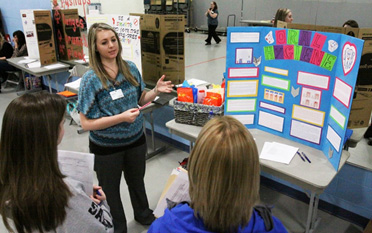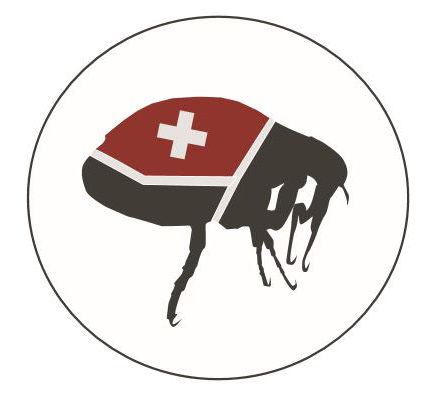The Healthy Flea
Home Page
![]()
.......................



KY Teach - Get Healthy
The Healthy Flea Market. Connected Science Learning. National Science Teachers Association (NSTA) On line January 16, 2017. Available at: https://www.nsta.org/connected-science-learning/connected-science-learning-november-2016-january-2017/healthy-flea
(see PR in UK NOW on this project: http://uknow.uky.edu/content/uk-project-engages-next-generation-kentuckians-tackle-health-problems )
(see PR within Fayette County Schools http://www.fcps.net/news/features/2014-15/ukmodules )
(https://bio.as.uky.edu/uk-project-engages-next-generation-kentuckians-tackle-health-problems )
UK undergrad classes, grad students and faculty blog with middle and high school students about concepts in health sciences: http://www.getacclaim.com/blog/biology-stem-and-communication-a-university-of-kentucky-collaboration/
( High school student research http://www.kentucky.com/living/family/article44595561.html )
The general health of citizens in the Commonwealth of Kentucky is poor in comparison to citizens in other states and ranks among the highest in COPD, obesity, diabetes, cardiovascular diseases.
The Healthy Kentuckians 2010 report specifically states the goals for increasing health status in KY is to follow set objectives. The objectives fall into 26 focus areas, which are further organized into four categories: (1) promote healthy behaviors; (2) promote healthy and safe communities; (3) improve systems for personal and public health; and (4) prevent and reduce disease and disorders (Healthy Kentuckians 2010 report. http://chfs.ky.gov/dph/hk2010.htm, The Division of Epidemiology and Health Planning).
These goals are aligned to the mission of the University, which is "dedicated to improving people's lives through excellence in education, research and creative work, service, and health care," and to the goals of this proposed project.
The primary target for improving citizen's health has been to target adults and with educational programs and specific health screening services as well as providing new services such as access to health care.
In our view, what is lacking is a focus on the future generations of
KY citizens by engaging the youth in the process. Concomitantly, bringing
middle and high school science teachers into the force to promote healthy
behaviors by elucidating the science behind physiological processes,
screening techniques, advancements in health care, and mechanisms of
diseases and technologies associated with health care will be engaging
and life enhancing for students.
This approach will provide robust teaching modules aligned to the vision and specific physical and life science standards of the Next Generation Science Standards (NGSS), which the State of Ky has adopted, and teachers are currently struggling to implement.
PIMSER at the University of KY in the College of Education has been successfully working with in-service teachers in every district in the state for the last 15 years in designing instructional experiences aligned to standards and utilizing research-based pedagogy. The PIMSER group is currently offering a new series of NGSS modules for teachers, which have been well attended and sought after. The timing is perfect for providing interdisciplinary modules aligned to the NGSS for middle and high school science as they are in great demand by teachers. In addition to the curricular materials, the training of in-service and pre-service teachers along with mentors from faculty cohorts and industrial partners in related fields, offers unique insights into approaches and implementation of technology in the biomedical and biotechnical fields, which will be shared with students.
These 8 -12 grade students will develop research-based projects at UK in the biomed/biotech and educational based groups.
Faculty within various units on University of Kentucky's campus (Department of Biology, ten STEM, health, medical and educational departments) are already implementing an inter-disciplinary, multi-dimensional program to further support the university's mission of meeting the most pressing health-related challenges of Kentuckians through the development of teaching modules, the training of in-service and pre-service teachers, and the engagement of middle and high school students in delivering information to the public alongside health-care professionals as well as participating in summer immersion experiences in biomedical and biotechnical fields with either an educational, industrial, or research focus.
Past and current activities:
We have been developing curricular materials, which integrate STEM topics focusing on the important issues related to the health of KY citizens. These teaching units are aligned to NGSS with inquiry and problem based learning and the culminating activity with students and teachers conducting presentations at local school events or within teacher training sessions.
Four current Modules are:
1. Skeletal muscle health: function, models and disease states. (see web page)
2. Population dynamics: Food quality, developmental rates, survival
stressors, and rate of reproduction. (see
web page)
3. Imaging in the biomedical field and basic sciences: Stereology 3D
images projected on 2D planes and error analysis. (see
web page)
4. The cardiovascular system: Models, measures, diseases examined by
testing models. (see
web page)
Students are currently gearing up this spring term (2015) with presenting their research projects to the public in local Farmer's markets/Flea markets. Thus, the name "The Healthy Flea" was developed for this project.
Our long term goals are to have summer training events in various environments with teachers and students. The participants will be exposed to research laboratories within the university, exposures with industrial partners, and co-training with pre-service teachers in developments of educational materials. The summer training will culminate with a student symposium to biotech companies and faculty involved in the training program. In addition, participants will learn how to produce multimedia presentations in video format in conjunction with Presentation U resources (a UK initiative) and how to produce content for public awareness.
We hope to begin to disseminate curricular materials with online access through UK and CIITS through KY Department of Education in the near future.
Building self-sustaining programs is key to long term success and efficient
use of efforts in building this program
We will use our model of "KY Teach" with a "Get Healthy" focus and the national U-Teach as a model for in-service preparation in STEM areas.
We include pre-pre-service teachers (students wanting to become teachers), in-service teachers and pre-STEM educational-based teachers.
By having the developed modules compiled for wider distribution with KDE, ACHIEVE and NSTA we hope the efforts will not only be distributed within KY and but nationally.
Students and teachers will have learned about the various topics in becoming healthy and why it is important using evidence-based inquiry and problem-based learning. In addition, they will have integrated all aspects of STEM in addressing these topics as well as the various careers which are involved in these health related topics from engineers, mathematicians, biologists, microbiologists, and chemists along with the use of technology. But more importantly, KY teachers, students, and the general public will have gained a better understanding of serious health threats to Kentuckians and the necessary measures to prevent them.
If we obtain funding for this project we will assess this project by a UK evaluation team lead by Jessica Heara.
Example of current activities presented at scientific meetings & in peer reviewed journals:
Publications:
Potter, S., Krall, R.M., Mayo, S. Johnson, D., Zeidler-Watters, K., and Cooper, R.L. (2016). Population dynamics based on resource availability and founding effects: Live and computational models. The American Biology Teacher 78(5): 396-403, ISSN 0002-7685, electronic ISSN 1938-4211 [PDF].
Titlow, J.S., Anderson H. and Cooper, R.L. (2014). Lights and Larvae: Using optogenetics to teach recombinant DNA and neurobiology. The Science Teacher 81 (#6):2-9. [ PDF]. (made the COVER photo) Also NSTA YOUTUBE https://www.youtube.com/watch?v=v-eyw6_GC9M
Presentations:
Hill, J., Dasari, S., Badre, N., Blackburn, J., Viele,K. with 19 Middle School, 2 High School Teachers in Fayette County and Cooper, R.L. (2005) Influence of nicotine on physiology, development and behavior of Drosophila melanogaster: Useful approaches for public school projects. Kentucky Academy of Sciences. Annual meeting. Eastern KY University, Richmond, KY. Nov. 10-12.
Schultz,
M.P., Krall, R.M., Dupont-Versteegden, E.E, Mayo, S., Johnson, D., Zeidler-Watters,
K.
and Cooper, R.L. (2014). Educational modules of skeletal muscle anatomy
and function for middle and high school students with models and active
data gathering. Annual meeting of the Kentucky Academy of Sciences.
Nov. 14-16, 2014 at Lexington, KY.
Potter,
S., Krall, R.M., Mayo, S., Johnson, D., Zeidler-Watters, K. and Cooper,
R.L. (2014).
Educational material which integrates math and biology for middle school,
high school, and introductory college sciences classes: Life survival
and physiology of Drosophila. Annual meeting of the Kentucky Academy
of Sciences. Nov. 14-16, 2014 at Lexington, KY.
Middleton,
D., Krall, R.M., Zeidler-Watters, K., Johnson, D., Mayo, S., Cooper,
R.L. (2015).
The healthy flea model: Public health education with 7-12 grades. 3rd
Annual meeting of the KY chapter of the American Physiological Society,
Sullivan University College of Pharmacy, Louisville, KY. March 23, 2015
(download Poster: PPT
file)
Thenappan,
A., Burns, E., Vaughn, M., Dupont-Versteegden, E.E. and Cooper, R.L.
(2015). An
undergraduate education module based on a research question: The effects
of muscle injury on synaptic transmission, axon conduction and muscle
physiology in relation to deep tissue injury. Bluegrass Chapter of Society
for Neuroscience annual meeting. Lexington, KY. March, 25.
Sanden,
M., Krall, R.M., Cooper, A.S., Cooper, R.L. (2015) Stereology in a biological
context
with the integration of mathematics, design and modeling. Bluegrass
Chapter of Society for Neuroscience annual meeting. Lexington, KY. March,
25.
Potter,
S., Krall, R.M., Mayo, S., Johnson, D., Zeidler-Watters, K. and Cooper,
R.L. (2015).
Population dynamics based on resource availability and founding effects:
Live and computational models. NCUR conference. April 16 to April 18,
2015 in Cheney, WA.
Schultz, M.P., Krall, R.M., Dupont-Versteegden, E.E, Mayo, S., Johnson, D., Zeidler-Watters, K. and Cooper, R.L. (2015). Educational modules of skeletal muscle anatomy and function for middle and high school students with models and active data gathering. NCUR conference. April 16 to April 18, 2015 in Cheney, WA.
Projects which have taken place or currently active in middle & high schools within KY
1. Morton Middle School (Lexington, KY): Skeletal muscle health; Population dynamics; Imaging in the biomedical field (2015)
2. Dunbar High School (Lexington, KY): Skeletal muscle health; Population dynamics; Imaging in the biomedical field; The cardiovascular system. (2015)
3. Sayre High School (Lexington, KY): The cardiovascular system.(2014)
4. Garrard High School (Lancaster, KY):Skeletal muscle health; Population dynamics; Neurological disorders. (2015)
Projects with middle and high school teachers within KY
"Health Fair" content presented on June 12, 2014 at PIMSER
A potental driving question for these topics related to health was "How does my DNA affect the function of my cells?" as a way to cut across the sciences from earth science to physics.
Projects:
2. Population dynamics-examples with fruit flies
3. Imaging science: Stereology, geometry and math integration with biological concepts (3D-2D issues)
5. Epigenetics
6. COPD / CO2-pH / Smoking and health
7. Gamma knife / Nuclear medicine
8. Cardiovascular issues: blood flow, viscosity, plaque
9. Physics in sports, movement and health
10. Synaptic transmission-Neurobiology
Presentations for NSTA teacher workshops
Louisville, KY REGIONAL NSTA MEETING
Workshops 2012
1. Thursday, October 18, 2012. 8:00-9:00 AM
STEM
and Health: Stressors on the Circulatory System Related to Excess Body
Fat
Kentucky International Convention Center, L7
2. Thursday, October 18, 2012. 12:30-1:30 PM
Effect
of Environment and Modulators on Hindgut and Heart Function in Invertebrates
Kentucky International Convention Center, L7
3. Friday, October 19, 2012. 5:00-5:30 PM
Classroom
Activity on Buffering Related to Respiration for High School and Introductory
College Courses in Biological Sciences
Kentucky International Convention Center, L8